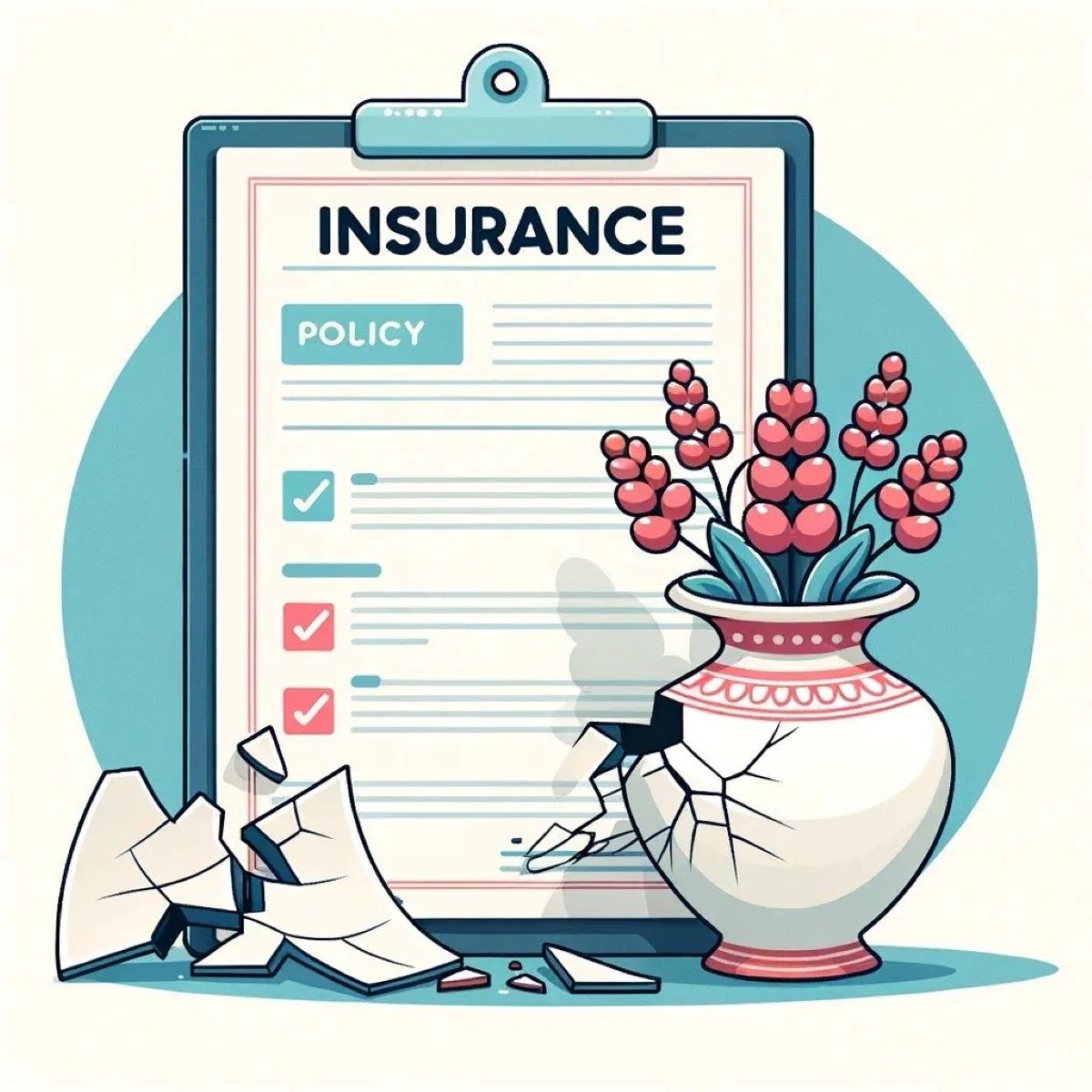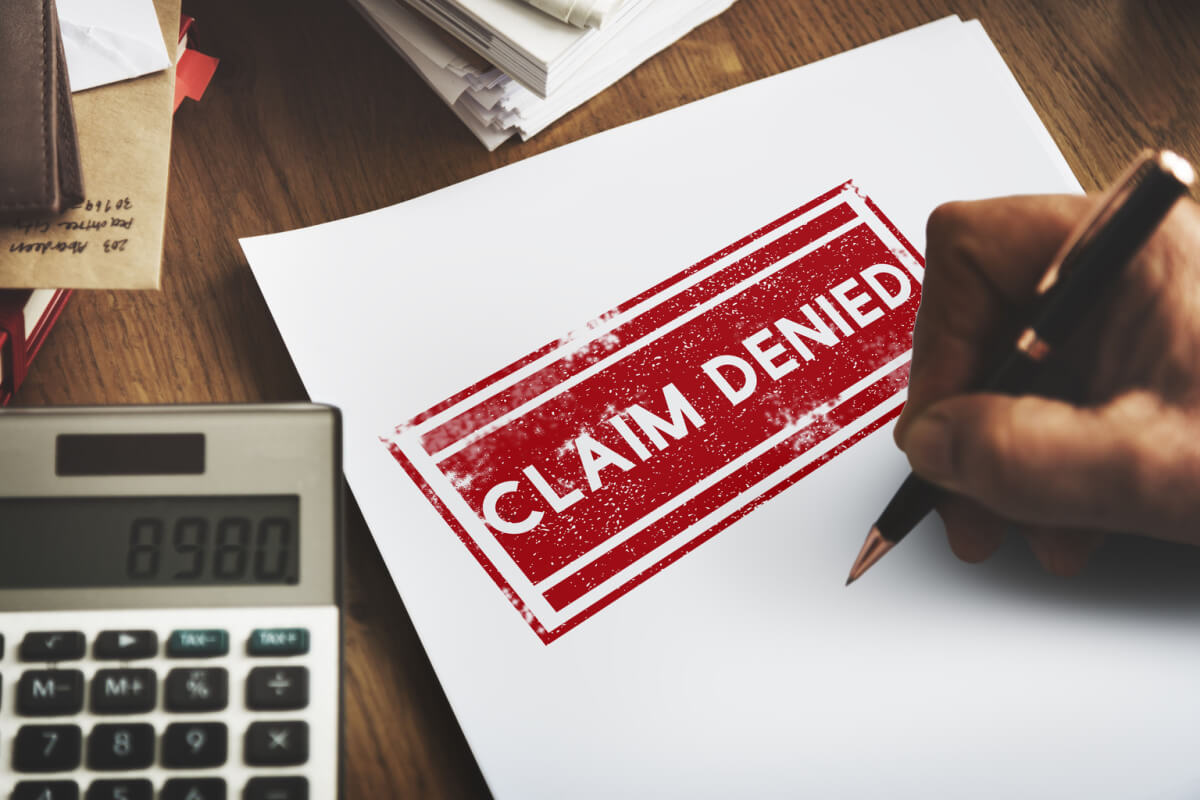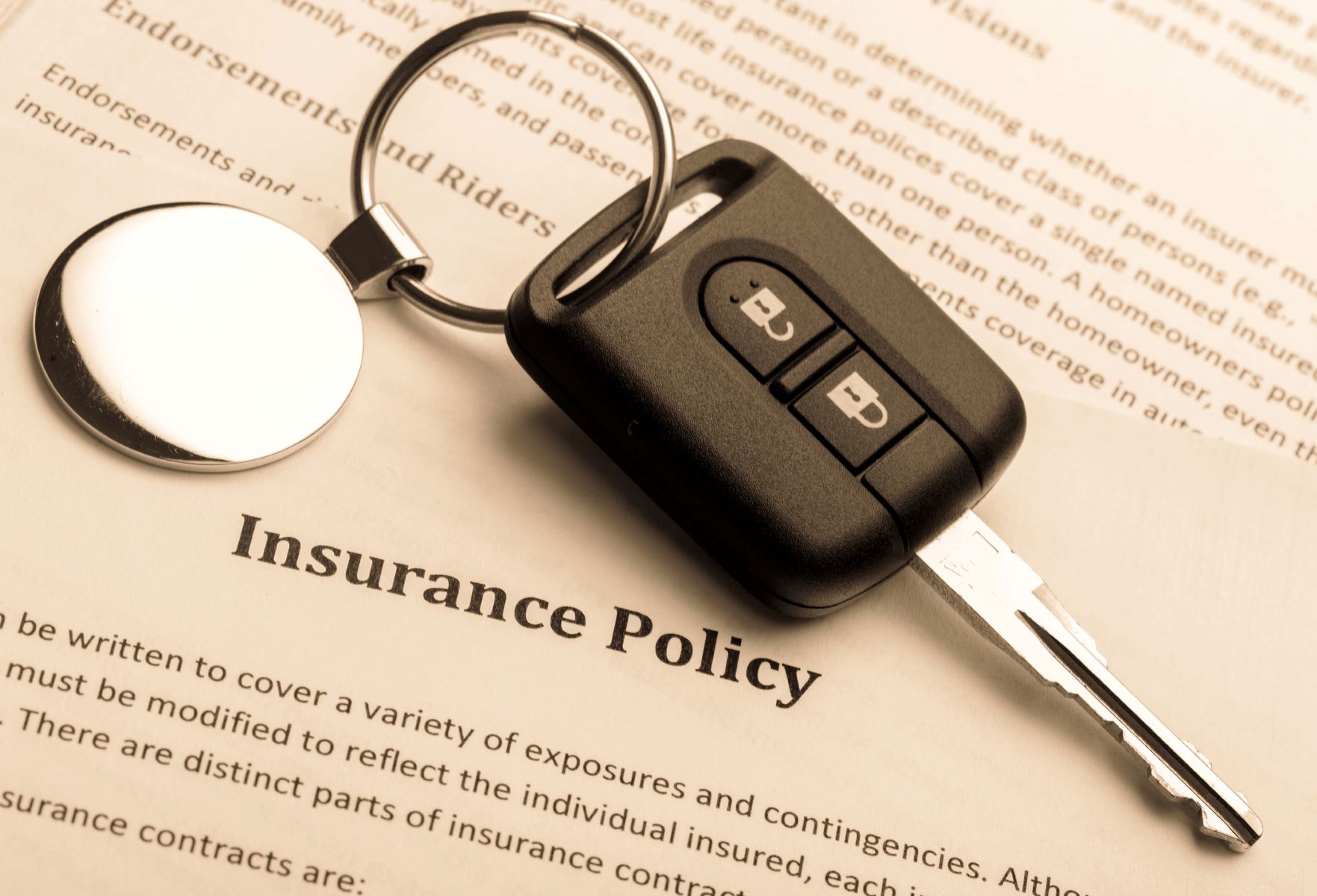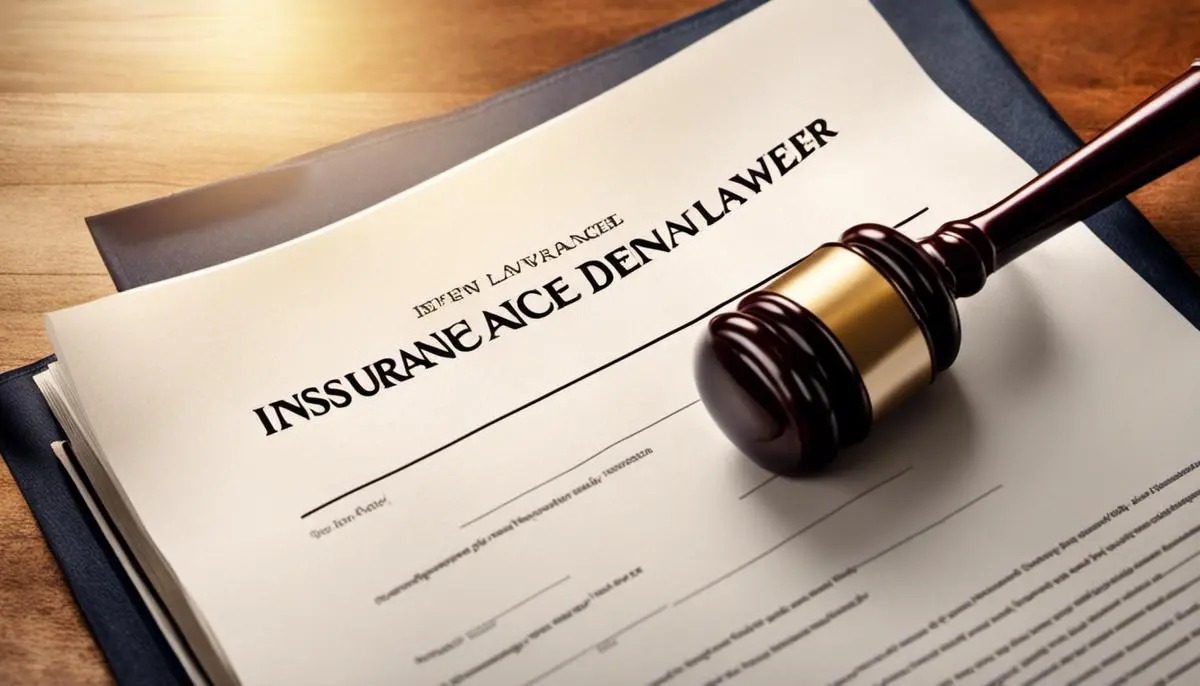

Finance
How To Appeal A Car Insurance Claim Decision
Published: November 15, 2023
Discover effective strategies to appeal a car insurance claim decision and secure the finance you deserve. Expert tips and guidance to maximize your chances of success.
(Many of the links in this article redirect to a specific reviewed product. Your purchase of these products through affiliate links helps to generate commission for LiveWell, at no extra cost. Learn more)
Table of Contents
- Introduction
- Understanding Car Insurance Claim Decisions
- Reasons for Denial of Car Insurance Claims
- Steps to Appeal a Car Insurance Claim Decision
- Gathering Evidence for Your Appeal
- Preparing Your Appeal Letter
- Submitting Your Appeal
- Following Up on Your Appeal
- Additional Resources for Car Insurance Claim Appeals
- Conclusion
Introduction
Car insurance claims can be a relief during a stressful time when your car has been damaged or involved in an accident. However, there are instances when your car insurance claim may be denied or not fully paid out. If you find yourself in this situation, it’s important to know that you have options. One of those options is to appeal the car insurance claim decision.
Appealing a car insurance claim decision is a process that allows you to challenge the insurer’s decision and provide additional evidence to support your claim. It’s a way to advocate for yourself and ensure that you receive the coverage you believe you are entitled to.
In this article, we will guide you through the steps of appealing a car insurance claim decision. We’ll discuss the common reasons for claim denials, how to gather evidence for your appeal, and provide tips on writing an effective appeal letter. Whether your claim was denied due to a misunderstanding, lack of information, or an error on the part of the insurer, this article will help you navigate the appeals process.
Additionally, we’ll talk about the importance of following up on your appeal and provide you with additional resources to help you through the process. With the right knowledge and guidance, you’ll be better equipped to present your case and increase your chances of having your car insurance claim decision overturned.
Keep in mind that every insurance company may have a slightly different appeals process, but the general principles discussed in this article can be applied in most cases. Now, let’s delve into the details of understanding car insurance claim decisions and the steps involved in appealing them.
Understanding Car Insurance Claim Decisions
Before diving into the process of appealing a car insurance claim decision, it’s crucial to have a clear understanding of how these decisions are made. Insurance companies follow specific guidelines and policies when evaluating claims. By understanding these factors, you can better navigate the appeals process.
When you file a car insurance claim, the insurance company will assign an adjuster to investigate and evaluate the claim. The adjuster will review the details of the incident, assess the damage to your vehicle, and determine whether the claim is covered under your policy. They may also consider the circumstances surrounding the incident, such as who was at fault.
Upon reviewing the information, the adjuster will make a decision on whether to approve or deny your claim. They may also decide to offer a partial payment if they feel that certain aspects of the claim are covered, but not others. It’s important to note that insurance companies will always try to minimize their payout, which can result in claim denials or underpayments.
Insurance companies base their decisions on several factors:
- Policy Coverage: The adjuster will carefully review your policy to determine what is covered and what is not. They will assess whether the incident falls under the terms and conditions of your policy.
- Evidence and Documentation: The adjuster will scrutinize the evidence and documentation provided in support of your claim. This may include police reports, photographs, witness statements, and medical records.
- Policy Exclusions and Limitations: Your insurance policy may have certain exclusions or limitations that could impact the outcome of your claim. For example, if you were using your vehicle for commercial purposes when the incident occurred, it may not be covered.
- Pre-existing Damage: The adjuster will assess whether the damage to your vehicle was pre-existing or directly related to the incident in question. They may request information about previous repairs or maintenance to establish this.
- Policyholder Behavior: The adjuster may also consider your conduct before, during, and after the incident. If there is evidence of negligence or fraudulent behavior, it can affect the outcome of your claim.
Understanding these factors can help you evaluate the decision made by the insurance company. It’s crucial to have a clear understanding of the specific reasons why your claim was denied or underpaid before proceeding with the appeals process. This knowledge will allow you to gather relevant evidence and present a strong case in your appeal.
Reasons for Denial of Car Insurance Claims
Insurance claim denials can be frustrating and disheartening, especially when you’re counting on the coverage to alleviate the financial burden of car repairs or medical expenses. It’s essential to understand the common reasons why car insurance claims are denied, as this knowledge can guide you in the appeals process. Here are some of the most common reasons for denial:
- Lack of Coverage: One of the primary reasons for claim denials is when the incident is not covered under your insurance policy. It’s crucial to carefully review your policy and understand its limitations and exclusions to avoid potential surprises.
- Late Reporting: Insurance companies typically require claims to be reported promptly after an incident. Failing to report the claim within the designated timeframe can give the insurance company grounds to deny it.
- Doubtful Circumstances: Insurance adjusters may deny a claim if they find the circumstances surrounding the incident suspicious or questionable. This could include inconsistencies in statements, lack of supporting evidence, or conflicting witness accounts.
- Policy Exclusions: Your insurance policy may have specific exclusions that prevent coverage for certain incidents or damages. For example, if your policy excludes coverage for accidents caused by drivers under the influence of alcohol or drugs, your claim may be denied if such circumstances are proven.
- Lack of Documentation: Inadequate or insufficient documentation is another common reason for claim denials. Insurance companies typically require proper documentation, such as police reports, photos of the damage, and medical records, to support your claim.
- Pre-existing Damage: If the insurance company determines that the damage to your vehicle existed before the incident occurred, they may deny your claim. They may require proof that the damage was caused by the specific incident in question.
- Policy Premiums not Paid: Failure to make timely premium payments can result in a lapse in coverage, leading to claim denials. It’s essential to stay current with your premium payments to ensure continuous coverage.
- Negligence: If the insurance company determines that you were negligent or at fault for the accident, they may deny your claim. This could include situations where you were driving under the influence, violating traffic laws, or engaging in reckless behavior.
Understanding these common reasons for claim denials can help you evaluate whether your insurance company’s decision is justified or if there may be grounds for an appeal. It’s crucial to thoroughly review the denial letter and gather the necessary evidence to challenge the insurer’s decision in your appeal.
Steps to Appeal a Car Insurance Claim Decision
If you believe that your car insurance claim has been wrongfully denied or underpaid, you have the right to appeal the decision. The appeals process allows you to present additional evidence and arguments to challenge the insurer’s decision. Here is a step-by-step guide on how to appeal a car insurance claim decision:
- Step 1: Review the Denial Letter: Carefully read the denial letter from your insurance company to understand the specific reasons for the denial. Take note of any documents or evidence that may have been missing or overlooked in the initial claim process.
- Step 2: Understand the Appeals Process: Familiarize yourself with your insurance company’s appeals process. Each insurer may have different procedures and requirements, so it’s important to follow their guidelines and deadlines.
- Step 3: Gather Additional Evidence: Collect any additional evidence that supports your claim. This may include photographs of the damage, police reports, witness statements, or expert opinions. Make sure to obtain any documentation that was missing or incomplete in your initial claim submission.
- Step 4: Contact Your Insurance Company: Reach out to your insurance company to inform them of your intent to appeal. Ask for the necessary forms or instructions required to initiate the appeals process. Keep a record of all communication, including dates, times, and names of the representatives you speak with.
- Step 5: Prepare Your Appeal Letter: Write a formal appeal letter addressing the reasons for the denial and providing a comprehensive explanation of why you believe the decision should be overturned. Include any new evidence or arguments that support your claim and address the insurer’s concerns.
- Step 6: Seek Legal Advice if Necessary: If your claim is complex or involves significant damages, it may be beneficial to consult with an attorney who specializes in insurance claims. They can provide guidance and help strengthen your case.
- Step 7: Submit Your Appeal: Submit your appeal letter and any supporting documentation to your insurance company, following their specified submission method. Make sure to keep copies of all documents for your records.
Remember, each insurance company may have variations in their appeals process and documentation requirements. It’s vital to thoroughly review your policy and consult with your insurance company to ensure you adhere to their specific guidelines. By following these steps, you increase your chances of having your car insurance claim decision overturned and receiving the coverage you deserve.
Gathering Evidence for Your Appeal
When appealing a car insurance claim decision, strong evidence is crucial to support your case and demonstrate that the initial decision was incorrect or unfair. Here are some key steps to help you gather the necessary evidence for your appeal:
- Review the Denial Letter: Carefully consider the reasons provided in the denial letter. This will help you identify any gaps or missing information that you can address in your appeal.
- Collect Relevant Documentation: Gather all relevant documents related to the incident, such as police reports, photographs of the damage, medical records, and repair estimates. Make sure to obtain proper copies of these documents to include with your appeal.
- Obtain Witness Statements: If there were any witnesses to the incident, reach out to them and ask for written or recorded statements detailing what they witnessed. These statements can provide valuable support for your claim.
- Get Expert Opinions: If necessary, seek expert opinions from professionals in relevant fields. For example, if your claim involves complex vehicle damage, consult with a trusted mechanic or collision expert to provide an assessment and written report.
- Document Pre-existing Damage: If the insurer claims that the damage to your vehicle existed before the incident, gather any evidence that proves otherwise. This can include photographs of your vehicle taken before the incident or receipts showing recent repairs.
- Show Compliance with Policy Terms: If the denial is based on a policy exclusion or limitation, gather evidence that demonstrates your compliance with the policy terms. This may include proof of premium payments, endorsements, or policy amendments.
- Provide Clear and Detailed Information: Ensure that all evidence you gather is clear, organized, and properly documented. Clearly label and present each piece of evidence to facilitate understanding and strengthen your case.
- Consider Seeking Professional Help: If your claim involves complex legal or technical issues, consider consulting with a professional, such as an attorney or insurance claims specialist. They can help you navigate the appeals process and provide expert advice.
Remember to keep copies of all the evidence you gather and maintain a record of all communication with your insurance company throughout the appeals process. By diligently gathering and presenting compelling evidence, you increase your chances of a successful appeal and a favorable outcome for your car insurance claim.
Preparing Your Appeal Letter
An appeal letter is a crucial component of the car insurance claim appeals process. It provides an opportunity for you to present your case, address the reasons for the denial, and provide additional evidence to support your claim. Here are some important tips for preparing an effective appeal letter:
- Address the Denial Reason: Clearly state the specific reason or reasons provided by the insurance company for the denial of your claim. This will show that you understand the basis of their decision.
- Provide a Detailed Explanation: Explain why you believe the insurance company’s decision was incorrect or unfair. Present a comprehensive and compelling argument, supporting it with strong evidence and relevant facts.
- Include Additional Evidence: Attach copies of any new evidence or documentation that supports your claim. This can include photographs, repair estimates, medical records, witness statements, or expert opinions.
- Organize Your Information: Present your information in a clear and logical manner. Use headings, bullet points, and numbered lists to make your points easy to understand and follow. This will also help the insurance company navigate your appeal letter more efficiently.
- Stay Professional and Courteous: Maintain a professional and respectful tone throughout your appeal letter. Avoid any emotionally charged language or personal attacks. Remember, you want to be persuasive and professional in order to increase the chances of a favorable outcome.
- Highlight Policy Coverage: Emphasize how your claim meets the terms and conditions of your policy. Provide specific policy language or endorsements that support your case.
- Address Any Potential Counterarguments: Anticipate and address any potential counterarguments that the insurance company may raise. Be proactive in debunking their reasoning and provide alternative perspectives for consideration.
- Be Concise and to the Point: While it’s important to include all necessary information, avoid lengthy and repetitive explanations. Keep your appeal letter concise and focused on the key points that will strengthen your case.
- Proofread and Edit: Before submitting your appeal letter, thoroughly proofread it for grammar and spelling mistakes. Editing for clarity and coherence will ensure that your arguments are effectively conveyed.
By following these tips and guidelines, you can create a strong and compelling appeal letter that effectively presents your case and increases the likelihood of a positive resolution for your car insurance claim appeal.
Submitting Your Appeal
Once you have prepared your appeal letter and gathered all the necessary supporting documentation, it’s time to submit your appeal to the insurance company. Here are the steps to follow when submitting your appeal:
- Adhere to the Deadline: Make sure to submit your appeal within the specified timeframe provided by your insurance company. Missing the deadline could result in your appeal being dismissed.
- Use Certified Mail or Delivery Confirmation: When sending your appeal, use a reliable method such as certified mail or delivery confirmation. This ensures that you have proof of the date of delivery and that your appeal was received by the insurance company.
- Address the Correct Department: Verify the correct mailing address or email address for submitting your appeal. Address your appeal to the appropriate department or person, as specified by your insurance company’s appeal process.
- Include all Required Documentation: Double-check that you have included all the necessary documentation to support your appeal. This may include your appeal letter, any additional evidence, and any forms or specific documents required by your insurance company.
- Keep Copies: Make copies of all documents that you are submitting, including your appeal letter and supporting evidence. Keep these copies for your records in case they are needed later in the appeals process.
- Consider Sending a Follow-Up Notification: After submitting your appeal, consider sending a follow-up notification to confirm that your appeal has been received. This can provide you with peace of mind and ensure that your appeal is being processed.
- Keep Track of Communication: Maintain a record of all communication with the insurance company, including dates, times, and the names of individuals you have corresponded with. This will help you stay organized and track the progress of your appeal.
- Be Patient: The appeals process may take time, so it’s important to be patient. Allow the insurance company sufficient time to review and respond to your appeal. If you haven’t received a response within a reasonable timeframe, consider following up with the insurance company to inquire about the status of your appeal.
By following these steps and submitting your appeal in a timely and organized manner, you give your appeal the best chance of being reviewed and considered by the insurance company. Remember that every insurance company may have slight variations in their appeals process, so it’s important to carefully review their guidelines and requirements.
Following Up on Your Appeal
After submitting your appeal, it’s important to follow up with the insurance company to ensure that your appeal is being processed and to inquire about the status of your case. Here are some essential steps to follow when following up on your appeal:
- Keep Track of Time: Take note of the timeframe provided by the insurance company for reviewing appeals. This will give you an idea of when it is appropriate to follow up.
- Document all Communication: Keep a record of all communication related to your appeal, including dates, times, and the names of individuals you speak with. This will help you stay organized and provide a reference in case there are any discrepancies or issues later on.
- Be Patient: Appeals can take time to process, so try to maintain patience during the waiting period. It’s not uncommon for the insurance company to require several weeks or even months to review and make a decision on your appeal.
- Follow Up Politley: Reach out to the insurance company using a polite and professional tone. Inquire about the status of your appeal and ask if there is any additional information or documentation they may need from you.
- Request a Timeline: If you feel that an excessive amount of time has passed without any communication or progress on your appeal, respectfully request a timeline for when you can expect a decision.
- Consider Escalating the Issue: If you have followed up multiple times and have not received a satisfactory response or update, you may need to escalate the issue. Ask to speak with a supervisor or escalate your case to a higher department within the insurance company.
- Seek Legal or Consumer Assistance: If you have exhausted all avenues of communication with the insurance company and are not making progress with your appeal, you may want to seek legal counsel or consumer assistance. They can provide guidance on how to proceed and may be able to advocate on your behalf.
- Stay Persistent: Don’t give up on pursuing your appeal. Be persistent in your efforts to follow up and seek resolution for your claim. Your persistence can potentially lead to a positive outcome.
Remember, the key to following up on your appeal is to remain polite, professional, and persistent. By keeping a detailed record of all communication, staying patient, and advocating for your rights, you can increase the chances of receiving a fair and favorable resolution to your car insurance claim appeal.
Additional Resources for Car Insurance Claim Appeals
Appealing a car insurance claim decision can be a complex process, and it’s essential to have the right resources and support to navigate it effectively. Here are some additional resources that can provide guidance and assistance during your car insurance claim appeal:
- State Insurance Department: Contact your state’s insurance department to understand your rights as a policyholder and to inquire about any specific regulations or requirements related to the appeals process. Most state insurance departments have consumer complaint divisions that can help mediate disputes between policyholders and insurance companies.
- Consumer Advocacy Organizations: Consumer advocacy organizations, such as the National Association of Insurance Commissioners (NAIC) or the Consumer Federation of America (CFA), can provide valuable information and guidance on insurance claim issues. They often have resources available on their websites or may be able to direct you to relevant sources of assistance.
- Legal Aid Services: If you believe your car insurance claim appeal involves legal complexities or if you have limited resources, consider reaching out to legal aid services or pro bono organizations in your area. They may be able to provide free or low-cost legal advice and representation for your appeal.
- Online Forums and Communities: Participating in online forums or communities dedicated to car insurance claims and appeals can provide you with insights and support from individuals who have gone through similar experiences. These platforms can be a valuable source of information and advice.
- Attorneys and Insurance Claims Specialists: If you feel overwhelmed or need professional guidance, it may be beneficial to consult with an attorney who specializes in insurance claims or an insurance claims specialist. They can provide personalized advice, review your case, and help you develop a strong appeal strategy.
- Publications and Guides: Many reputable sources, such as insurance-focused websites, books, and publications, offer comprehensive guides and articles on navigating insurance claim appeals. These resources can provide step-by-step instructions, tips, and insights to help you through the process.
When utilizing these resources, it’s important to carefully evaluate the credibility and relevance of the information. Every case is unique, and it’s essential to consult with professionals or seek legal advice if you have specific concerns or complexities related to your car insurance claim appeal.
Remember, the more informed and prepared you are, the stronger your appeal will be. By utilizing these additional resources, you can gain a better understanding of your rights, gather valuable insights, and increase your chances of a successful car insurance claim appeal.
Conclusion
Appealing a car insurance claim decision can be a challenging process, but with the right knowledge, preparation, and resources, you can increase your chances of a successful outcome. Understanding car insurance claim decisions, reasons for denial, and the steps involved in appealing can significantly impact the effectiveness of your appeal.
By gathering strong evidence, preparing a persuasive appeal letter, and following up on your appeal, you demonstrate your commitment to fighting for the coverage you believe you deserve. Utilizing additional resources, such as state insurance departments, consumer advocacy organizations, and legal aid services, can provide invaluable guidance along the way.
Remember to remain persistent, patient, and professional throughout the appeals process. By staying organized and keeping track of all communication, you can effectively advocate for yourself and navigate any challenges that may arise.
While there is no guarantee of a successful appeal, by taking these proactive steps, you increase your chances of a favorable resolution and ensuring that you receive the coverage and compensation that you are entitled to under your car insurance policy.
Lastly, it’s important to consult with professionals and seek legal advice if you have complex or challenging cases. They can provide personalized guidance based on your specific circumstances and help you navigate the appeals process with confidence.
Appealing a car insurance claim decision takes determination, persistence, and a thorough understanding of the process. With the right approach and the right resources, you can increase your chances of having your claim decision overturned and receive the coverage and support you need.














